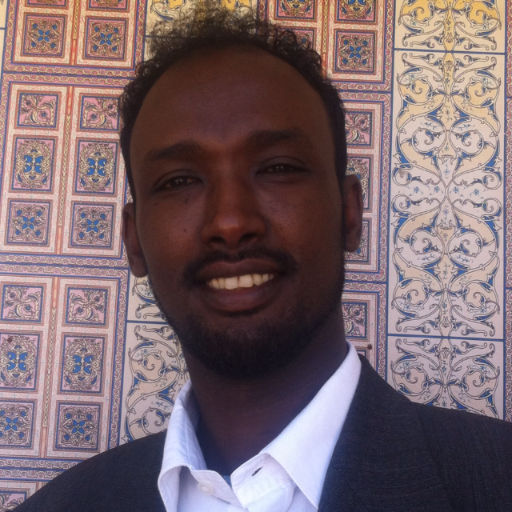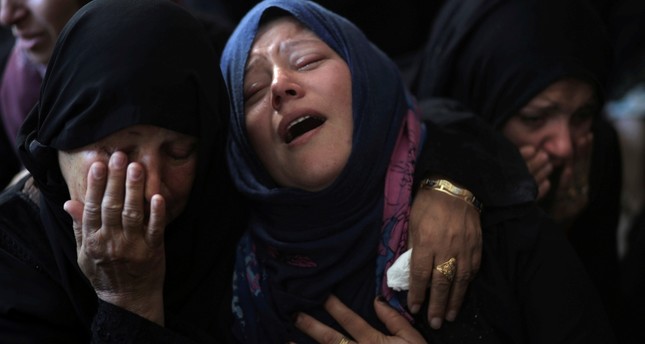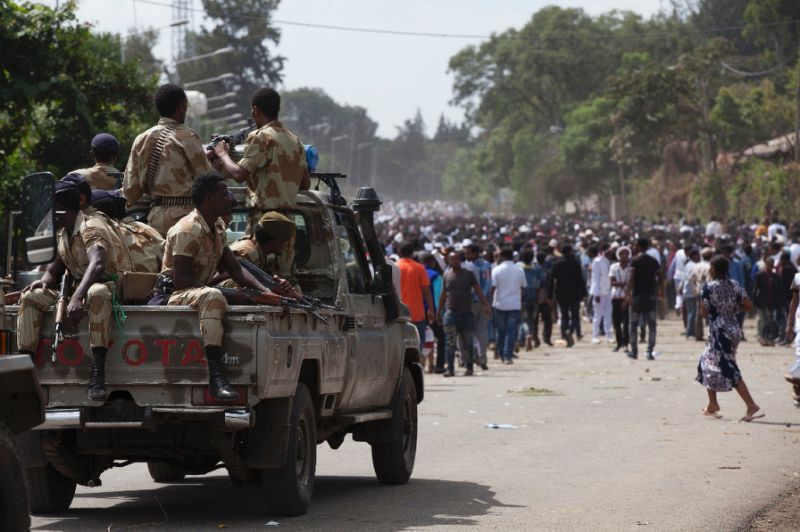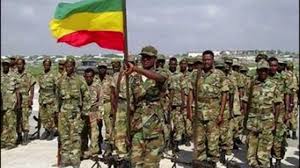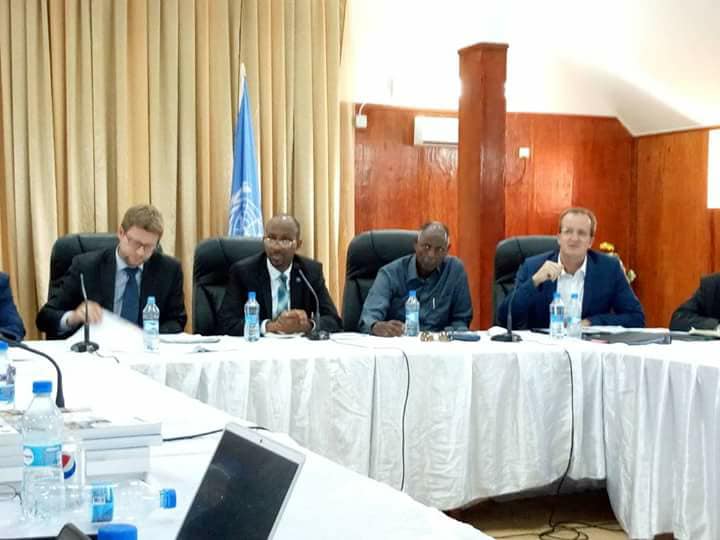Baidoa(INO)- 10 September 2012, the election of a novice for Somalia’s President caught the attention of all politicians, presidential candidates, election monitors, International Community, political observers, and the public by surprise. This come when many Somalis thought the new government would benefit from three crucial institutional foundations that it can build upon: widespread public support, a new constitution, and an effective national parliament. But many people did not know that Hassan sheikh was only an educator with no leadership background and was not known to many people.
The International community welcomed Hassan Sheikh Mohamud and his new Government, given red carpet treatment at world capitals, received diplomatic recognition for the first time since 1991, many Somali people had the hope that he could reunite the fragmented nation.
Looking back 4 years, the formation of Hassan sheikh’s government clearly reflected too many people in the country as hope and collective resolve of the Somali people to move from the transitional institutions to a more representative Government that could meet the legitimate aspirations of all sections of Somali society, but these did not happened.
There are so many factors that cause the poor leadership that Somalia has been going through for the past years and it is still questionable if the elites who have come to power have learned anything from those crises that have great impact on the country’s move toward progress and stability.
Somalia has witnessed decades of conflict, violence, human rights violations and natural disasters, while there are many dire predictions for Somalia’s stability and future. The election of new leadership in 2016 presents a new opportunity to prioritize efforts to improve governance, and enhance accountability.
“Hassan Sheikh’s government failed to tackle the security & stabilization of the country” the president did not accomplished the stated objective of the vision and the specific political goals of the 2016 vision, Rather than dealing with the innumerable challenges facing the country. Security, reconciliation, the economy, education, infrastructure, and healthcare are a few of the many issues that have not get addressed.
We can only see abuse of entrusted authority both public and private for illegitimate gain. Not only to economic growth and development, but also to political stability, democracy, and sustainable peace.
Corruption have deeply undermined the effectiveness and legitimacy of nascent government institutions, although corruption in Somalia cannot be eliminated overnight, it could be significantly reduced.
Chaos, Al-Shabaab horror, ten years of unfruitful from the AMISOM (Al-Shabaab control much of the countryside in southern Somalia and retain the capacity to carry out large-scale and operations). All these is seen as poor leadership by many people in the country as a clear indication of failure government.
As Somalia seeks to stand on its own, security is the issue of greatest concern to Somalis, ahead of unemployment, standard of living, and even government performance as a general matter.
Consequently, many Somalis have lost faith in their leaders’ ability to unite the nation, which may lead the country away from economic prosperity.
Causes of failure: Hassan Sheikh’s government
The causes are numerous and complex, 4 years of corruption have severely hampered the development and maintenance of effective government institutions and the civil organizations that monitor them.
- Hassan sheikh M started with the corrupt process of bribing Somali MPs during the federal election by cash handout
- Failed to unite the Somali people through reconciliation
- Failed to build strong Somali national army
- Failed to destroy Al Shabaab’s capacity to attack Mogadishu and other cities, and
- Failed to organize national elections in 2016. He has also failed to fulfill Somalia’s international obligations
- Societal divisions, waste time and resources, marginalized the periphery and evoke donor mistrust. This became evident in the Federal Government’s mismanagement of the Jubaland state formation process and the Baidoa Conference
- The former Governor of the Central Bank of Somalia Ms. Yussur Abrar also resigned from her position after less than two months on the job citing that the Central Bank of Somalia was not allowed to function free of interference from the President’s office
- Likewise, a U. N. report on Somalia released in July 2014, stated that eighty per cent (80%) of the withdrawals from the country’s Central Bank was used for private purposes
- In less than two years Mr. Hassan sheikh Mohamud ousted not only one prime minister, having three Prime Ministers (Abdi Farah Shirdon, Abdiweli Sheikh Ahmed and Sharmarke) And each time he sacks them through the Parliament, with the incompetency of the speaker has encouraged some members of parliament to openly solicit bribes and put their votes for sale to the highest bidder, is definitely a sign of political instability and leadership failure
- Establishing regional administrations based on fairness
- Prolonged absence on foreign visits and the waste of resources on airfares and hotels.
Somalia cannot be rebuilt without fixing the army, the Somali National army are severely handicapped by a lack of military resources and lack of salaries to the military that would potentially equip it to decimate Al-Shabaab, There is no benefit in funding foreign soldiers to fight in Somalia. It will be the best to arm, train, and pay the Somali forces instead.
If Somali soldiers are well paid, thousands of Somali boys and girls would be willing to sign up for the military, and they would actually have an incentive to destroy any crime activities in the country.
Somali National army are the real infantry force of AMISOM-led operations. They are the ones who suffer the most casualties. They possess neither heavy arms nor armored trucks, neither bulletproof vests nor enough ammunition. They don’t even have appropriate communication devices, as they rely on a few cell phones, and, unlike their partners (AMISOM) when wounded in battle, they don’t get emergency evacuation or get flown out of the country for medical care.
And among others are the Civil servants who are frequently underpaid or not even paid, and they receive little training. The government was unable to provide for the essential human needs of its citizens in terms of security as well as adequate food, clean water, health care, and education especially in the rural areas and families living as displaced in the city of Mogadishu. Hassan sheikh’s government officials used the opportunity of public office to fill personal coffers and channel funds to patronage networks at the expense of public good.
Somalia lived with tribal systems and entrenched ethnic divisions, structural weaknesses interact in complex ways with grouping ideas particularly with the expectation that those who have influence wield it to benefit members of their extended network and that is the exact root that Mr. Hassan sheikh has done over the past 4 years of his power.
These conditions would likely produce significant levels of corruption under any circumstances.’ In Somalia, however, Hassan sheikh’s Government effects have been amplified by factors unique to country’s troubled history: a massive influx of foreign assistance often distributed without proper monitoring mechanisms and which quickly exceeds the absorptive capacity of the Somali government that effect on the Somali economy that is hard to overstate.
Openness and transparency can only happen by building a sense of expectation and commitment in favor of honesty, transparency, respect, and accountability in government, something needs to be done to rouse citizens out of their apathy and/or complacency about doing the things required to ensure the future of a strong, democratically elected, government in Somalia
Future elected parliamentarians could improve on transparency and open government, to take a leadership role so that the wider public service embraces the open provision of Parliamentarians who can meet the demands of the public in a timely manner.
My request to the Somali clan elders, please bring on the table a parliamentarian who is prepared for the complex problems that the future will bring.
Mohamednur Madobe Nunow (Community & civil society Activist)
Researcher at Research Analysis & Development Evaluations Group
Email: Madowe1@gmail.com
Twitter:@mnuurmadoobe
(Opinions expressed in this article are mine and do not reflect any related work)

